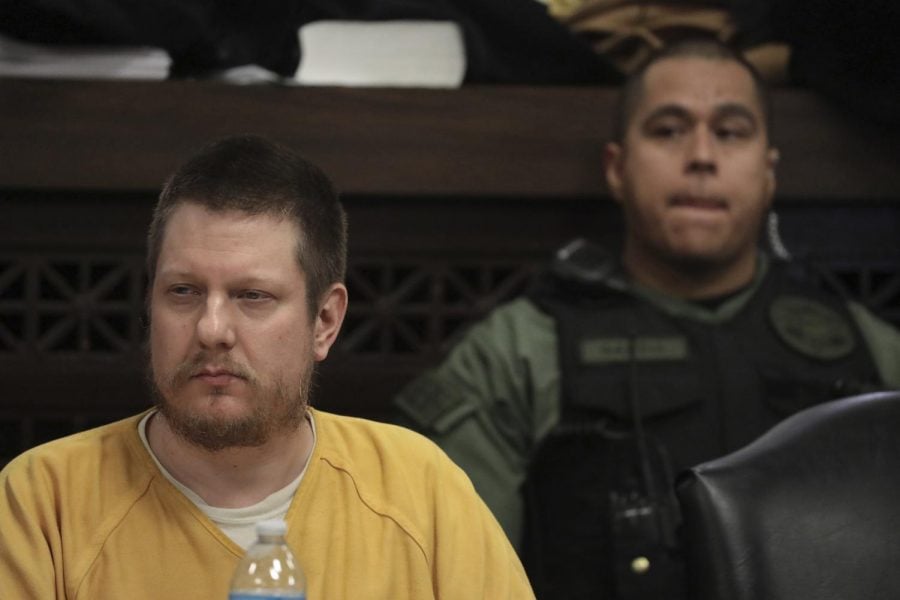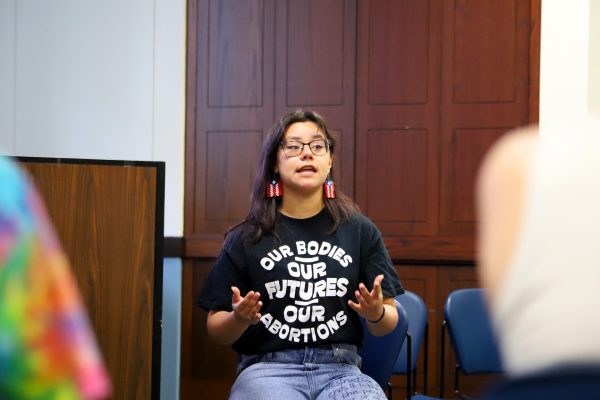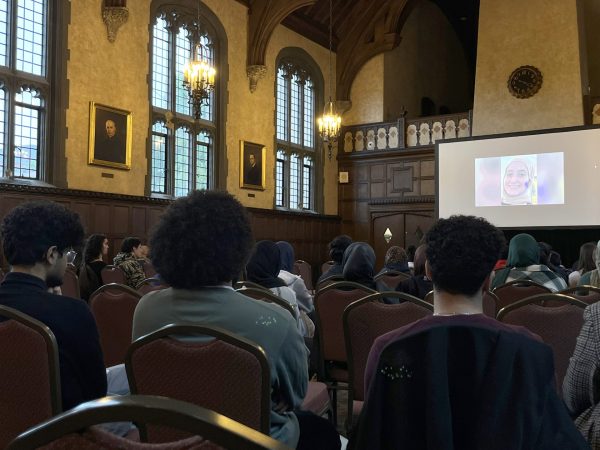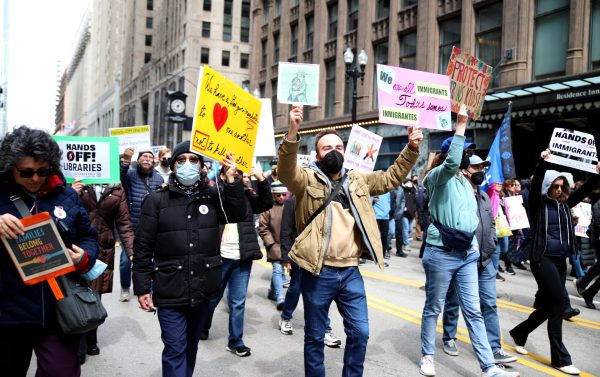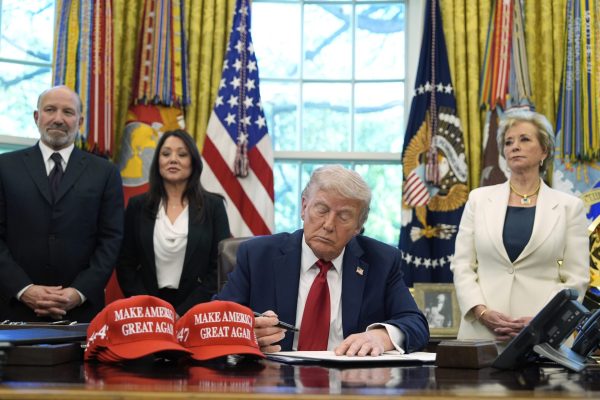Chicago comes to terms with Van Dyke’s 81-month sentence
Antonio Perez | Chicago Tribune Via AP Pool for The DePaulia
Former Chicago police Officer Jason Van Dyke attends his sentencing hearing for the murder of Laquan McDonald.
Citizens of Chicago were outraged and disappointed when it was announced that former Chicago Police Officer Jason Van Dyke will serve less than a decade for committing second degree murder.
Van Dyke was found guilty of the death of 17-year-old black teenager Laquan McDonald, who Van Dyke shot 16 times in 2014. The case captivated national attention, with McDonald’s murder becoming a symbol of the larger Black Lives Matter movement.
Following the release of a dashcam video depicting Van Dyke shooting McDonald 16 times, protests erupted in Chicago, condemning the shooting as a blatant act of racism, and calling for Van Dyke to be arrested.
Van Dyke was sentenced to 81 months in prison, or roughly seven years. Many feel that the sentencing was far too light compared to the severity of Van Dyke’s crimes.
Black Lives Matter activists in Chicago took their outrage to the public sphere by hosting a protest on Monday. “They lock us up, they shoot us down. Ain’t no justice in this town,” protestors shouted, according to the Chicago Sun-Times.
Chicago mayoral candidate Amara Enyia is similarly disappointed with the outcome, saying that it squanders public hope for a just legal system.
“The day that the verdict was read and officer Jason Van Dyke was charged with second degree murder seemed to be a step in the right direction, however the sentencing, I think, just took a step back,” Enyia said. “It just shows how much work is left to be done for people to believe there can be any justice within the city within the judicial system and that goes not just for the police department but also to our judges as well.”
The judge presiding over Van Dyke’s sentencing based his decision on Van Dyke’s second degree murder conviction, which carries a sentence range of probation to 20 years, according to The Chicago Tribune. This sharply contrasts with the minimum sentencing for Van Dyke’s conviction on 16 counts of aggravated battery with a firearm that carries a higher minimum prison stay.
Christina Rivers, an associate professor and pre-law advisor at DePaul University, is frustrated and disappointed by the Van Dyke’s sentence. Rivers believes a potential consequence of this outcome will be that if other officers commit similar offences in the future, the precedent will be that they don’t need to be held accountable.
“If one of the purposes of imprisonment is to serve as a disincentive against reckless or intentional harm, this very minimal sentence seriously undermines that purpose,” Rivers said. “Finally, the sentence suggests that the victim’s life was not worth much.”
Many believe the violence committed by Van Dyke isn’t reflected in his less than seven year prison sentence, nearly half of which he may spend out on parole. In Illinois, mere possession of narcotics, like 400 or more grams of methamphetamine, heroin, morphine or LSD, can carry minimum sentences that exceed seven years, according to official state laws.
Debi Campbell was sentenced to 20 years in prison for a nonviolent drug offense. She said she isn’t surprised that a violent offender was given a lower sentence than she was.
“My co-defendant told the judge that I could have killed somebody and gotten less time,” Campbell said. “It’s a fact that is well known and unfortunately it goes on everyday. People who kill people go to prison for a couple of years and then people who do drugs go to prison for life sometimes.”
In addition to Van Dyke’s sentencing last week, Officer Thomas Gaffney, former Officer Joseph Walsh and former Detective David March were all found not guilty on charges of conspiracy, obstruction of justice and official misconduct. The officers were charged for their statements regarding McDonald’s alleged violent conduct the night of the murder that were later proven false when dash cam footage was released to the public.
Many saw the alleged cover up as an emblem of the unofficial “code of silence” that encourages police to protect their fellow officers after they commit wrongdoing.
Following the release of the tape in 2015, Mayor Rahm Emanuel acknowledged the existence of such a code, admitting the wrongdoings of said actions.
“It is the tendency to ignore, it is a tendency to deny, it is a tendency in some cases to cover up the bad actions of a colleague or colleagues,” Emanuel said. Enyia sees this institutionalized corruption, and a major reason for a shift in city leadership.
“It’s all about establishing the culture within the dept that does not tolerate the code of silence and does not tolerate, for example, officers lying in their reports. You have to have a culture that has zero tolerance for that sort of behavior,” Enyia said. “The coverup only proved to Chicagoans just how deep the corruption went. It shows that the life of a teenager was less impt than the mayor getting reelected.”
The trial of Jason Van Dyke may not be quite over yet. The Chicago Tribune reports the prosecutor may ask the Illinois Supreme Court to review the case. In the meantime, the community at-large has to reckon with its trust, or lack thereof, in their city.
“We don’t want to discount the value of Jason Van Dyke being found to be guilty because that’s the first time a sitting officer has faced those charges and we know this isn’t the first time an officer has unlawfully killed a resident of the city,” Enyia said. “So you have to take into account the victories but also as we saw last week with the acquittal of the officers that were involved in the coverup and the sentencing, there’s a lot more work that needs to be done.”


